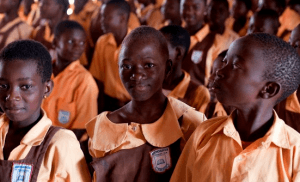Education tops concerns for Ghanaian voters – Report
 A research by the National Commission for Civic Education (NCCE) has revealed that the top issues of concern for Ghanaian voters include education, employment, health, roads and infrastructure, and the economy.
A research by the National Commission for Civic Education (NCCE) has revealed that the top issues of concern for Ghanaian voters include education, employment, health, roads and infrastructure, and the economy.
Dr. Henrietta Asante-Sarpong, Director of Research, Monitoring, and Evaluation at the NCCE, presented the report titled “Matters of Concern to the Ghanaian Voter” during its launch in Accra on Wednesday.
According to the research report, 18.3 percent of respondents prioritized education, followed by employment at 15.7 percent, health at 12.5 percent, roads and infrastructure at 10.0 percent, and the economy at 7.2 percent.
The research involved a sample size of 9,324 respondents aged 18 and above, gathered from across the 16 regions and 276 constituencies.
It found that 52.2 percent of respondents were male, and 47.8 percent were female.
The research revealed that 38.7 percent of participants urged the next government to address challenges related to the free Senior High School initiative.
Additionally, 30.3 percent called for the expansion of educational infrastructure, while 10 per cent requested increased funding for educational institutions to support teaching and learning.
Regarding employment, 57.5 percent of respondents emphasized the need for the next government to create job opportunities and build more factories, while 31.8 percent advocated for the rollout of additional youth employment programs.
In the health sector, 47.3 percent of respondents urged the next government to expand health infrastructure, while 16.7 percent called for improvements to the National Health Insurance Scheme (NHIS) to achieve wider coverage.
Regarding roads and infrastructure, 57.9 percent of participants requested the construction of more quality roads, and 29 percent demanded the rehabilitation of all deplorable roads.
Additionally, 40.1 percent of respondents highlighted the need for the next government to address issues related to the high cost of living and low standards of living, while 21 percent called for action on the high exchange rate.
On the issue of vote buying, the study found that 64.3 percent of respondents believed this practice influenced election outcomes, while 25 percent disagreed.
The research also recommended the enforcement of electoral laws to combat vote buying and electoral violence.
The research also recommended initiatives to enhance the representation of marginalized groups, including women, youth, and persons with disabilities, in political leadership.
Ms. Kathleen Addy, Chairperson of the NCCE, stated that the research accurately reflected voters’ views, which could assist political parties craft their messages to better address constituents’ needs.
She reiterated that the Commission would continue to expand its civic responsibilities to promote and sustain the country’s democratic values.
Professor Justice Bawole, Dean of the University of Ghana Business School, praised the NCCE for the research and encouraged the Commission to make the document accessible for academic discussions.
He suggested that future studies should also include qualitative analysis.
Dr. Eric Oduro Osae, Director-General of the Internal Audit Agency, urged the NCCE to develop a blueprint based on the findings to guide government efforts in national development.
Dr. John Osae-Kwapong, a governance and democracy expert, highlighted the importance of issue-based political discussions to enhance voter participation.
Dr. Aurelia Ayisi, a lecturer in the Department of Communication Studies at the University of Ghana, advised the youth to be cautious of misinformation and disinformation on social media as the general elections approach.
Source: GNA
